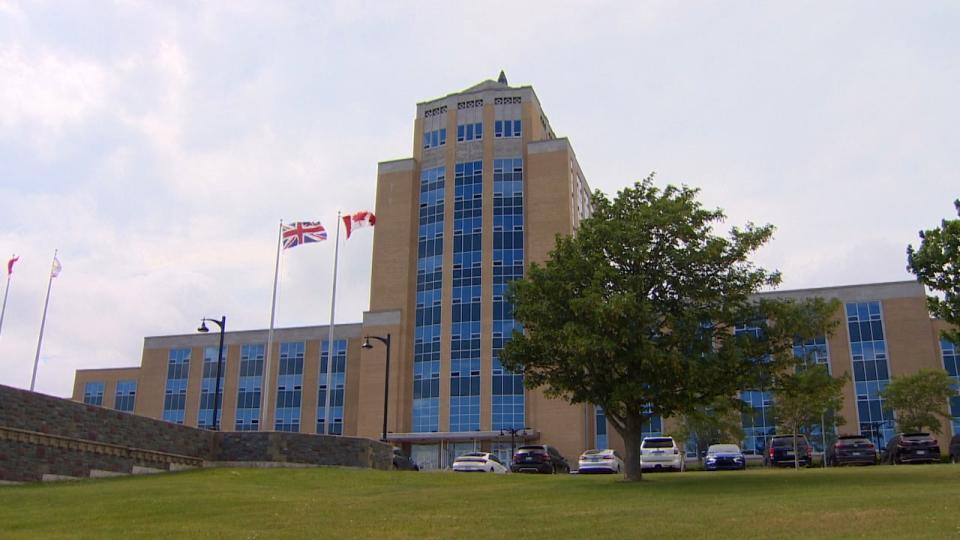Author of report that recommends raising MHAs' salaries defends her conclusions


Heather Jacobs, whose report recommends a pay increase for Newfoundland and Labrador's elected officials, briefed MHAs on her findings Thursday. (Curtis Hicks/CBC)
The author of a report that recommends a pay increase for Newfoundland and Labrador's elected officials briefed MHAs on her findings Thursday.
In a report released just before the Easter long weekend, Heather Jacobs, who was appointed by the House of Assembly in November to conduct a review of MHA compensation, recommended that they receive a base salary of $120,000.
"I believe we must value democracy by recognizing the importance of the work MHAs do and to compensate MHAs accordingly," she said Thursday.
Jacobs said the gap in pay between MHAs and the province's most senior civil servants has widened significantly.
In 2007, MHAs earned 70 per cent of the average deputy minister salary. Today, they earn about half.
The report recommends a $25,000 increase from current salaries, which have been frozen since 2009.
The report also says the base salary should be raised based on the Consumer Price Index, currently just over two per cent annually, and recommends improvements to pensions, per diems, mileage premiums and bonuses for extra parliamentary duties be hiked.
The report and its recommendations have faced public scrutiny, including from Jerry Earle, president of the Newfoundland and Labrador Association of Public and Private Employees, who expressed skepticism about public comments included in the report that were largely in favour of an increase for MHAs.
"I'm aware that some of the public is not receiving these recommendations favourably," Jacobs said.
Newfoundland and Labrador MHAs already make more than other provincially elected officials in Atlantic Canada.
But Jacobs said her report was based on months of research, conversations with MHAs and public consultations.
If salaries had kept pace with civil servant pay raises and inflation, she said, they would already be higher than $120,000.
Any changes to salary would have to be voted on by the House of Assembly, which is scheduled to reconvene Monday.
Download our free CBC News app to sign up for push alerts for CBC Newfoundland and Labrador. Click here to visit our landing page.


